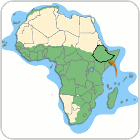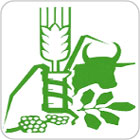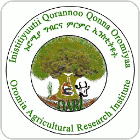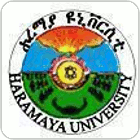 Ethiopia enjoys extremely varied climatic conditions -- from cool to very cold in the highlands, to one of the hottest places on earth at the Dallol Depression. Accounting for 47% of the GDP, agriculture is the backbone of Ethiopia’s economy. 85% of Ethiopians live in rural areas and depend on agriculture. Coffee, cereals, pulses and oilseeds are the major crops of the country.
Ethiopia enjoys extremely varied climatic conditions -- from cool to very cold in the highlands, to one of the hottest places on earth at the Dallol Depression. Accounting for 47% of the GDP, agriculture is the backbone of Ethiopia’s economy. 85% of Ethiopians live in rural areas and depend on agriculture. Coffee, cereals, pulses and oilseeds are the major crops of the country.
Plant breeding research in Ethiopia dates back to 1953 with the establishment of the Imperial College of Agriculture and Mechanical Arts (currently called Alemaya University). Today, ten institutions are involved in formal plant breeding and biotechnology research in Ethiopia. Among these institutions, only Pioneer-Ethiopia is a private entity. The number of plant breeders is increasing as well as their level of training.
Plant breeding resources in Ethiopia are relatively well-distributed since no crop occupies more than 18% share of the resources. By 2004, maize breeding consumed 18% of the resources, followed by pulses (15%), roots and tubers (15%), and wheat (13%). The major activity consists in line evaluation.
The most limiting factors for plant breeding programmes in Ethiopia are the lack of financial resources and the inadequate number of breeders for each crop. The country is one of the twelve world centres of origin and diversity of crops, and 53% of its germplasm requirement for breeding derives from indigenous sources. Ethiopia does not have polices in place for biotechnology research, which leads to an insignificant use of biotechnological tools to augment plant breeding.
Research and education institutes with activities in plant breeding
Public institutes

|
EARO is a federal public institution established by the government of Ethiopia to conduct research and coordinate the Ethiopian Agricultural Research System (EARS), with headquarter in Addis Ababa. The EARS is organized into five sectors: Crops, Livestock, Soil and Water, Forestry and Farm Mechanization. Each research process is subdivided into projects. Most of the EARO centres have been involved in plant breeding research for 39 years. However, one of the component centres, Debre Zeit Agricultural Research Centre, has a history of 50 years of plant breeding, as it is the first research centre in the country. Some of the EARO centres have carried out plant biotechnology research (tissue culture) for 10 years.
|

|
OARI was established after agricultural research in the country was decentralized following the federal governance system in Ethiopia. It is a public research institute, which gets its budget form the Oromia Regional Government. Two agricultural research centers have conducted plant breeding research for 11 years. No biotechnology research is carried out by OARI.
|

|
JU is a public higher educational institution established in December 1999 by the amalgamation of Jimma College of Agriculture (founded in 1952), and Jimma Institute of Health Sciences (established in 1983). The college has been involved in plant breeding for six years and there is no biotechnological research. Resources are equally distributed for sorghum, wheat, tubers, forages and vegetable (tomato). Only line evaluation was carried out in these crops.
|

|
AU is one of the public universities that carried out plant breeding research for a long time. It is the first institution in the country that started agricultural education at the college level in the early 1950s. 50% of its budget is allocated to plant breeding activities. AU allocates a large proportion of its resources to line development of maize, sorghum, potato and beans. There is no activity in plant biotechnology.
|

|
Amhara Regional Agricultural Research Institute (ARARI)
No Website available
ARARI is a public agricultural research institute accountable to the Bureau of Agriculture and Rural Development (BoRD) in the Amhara region of Ethiopia. It oversees five research centres that do plant breeding in the region. There is no biotechnological research in ARARI. In terms of budget allocation and number of plant breeders, ARARI is the second after EARO. Many crops are considered in ARARI's breeding activities, including barley, tef, wheat, grain legumes.
|
 |
Southern Agricultural Research Institute (SARI)
No Website available
Similar to OARI, SARI was established in 1994 after the decentralization of agricultural research in the country. Like other regional institutes it is a public institution that gets its budget from the regional government. In SARI, the breeding resources all go to line evaluation in wheat, small grains, cotton, forages, vegetables and fruits. No biotechnology research activity exists in SARI.
|
 |
Tigray Agricultural Research Institute (TARI)
No Website available
Like the other regional agricultural research institutes (RARIs), TARI was established as a public research institute during the past five years. A high proportion of the total budget was spent for activities of plant breeding. The highest share of budget is allocated to wheat and legumes and almost all resources (89%) are used for line evaluation and the trend is on the increase. TARI is working on micropropagation protocols of indigenous and economically important tree species that produce gums and incense.
|
Private Institute

|
Pioneer - Ethiopia is the only private company that does plant breeding in Ethiopia as of 2004. It carried out plant breeding activities on maize for the last 15 years. The sole activity is line evaluation. Pioneer is trying to develop suitable maize varieties for highly favourable environments as its top priority. Pioneer has not started plant biotechnology work in Ethiopia.
|
Information by Hailu Tefera (2006) - Information based on the Ethiopia's full report from the PBBC survey. Last revised 31-07-2009, GIPB
 Ethiopia enjoys extremely varied climatic conditions -- from cool to very cold in the highlands, to one of the hottest places on earth at the Dallol Depression. Accounting for 47% of the GDP, agriculture is the backbone of Ethiopia’s economy. 85% of Ethiopians live in rural areas and depend on agriculture. Coffee, cereals, pulses and oilseeds are the major crops of the country.
Ethiopia enjoys extremely varied climatic conditions -- from cool to very cold in the highlands, to one of the hottest places on earth at the Dallol Depression. Accounting for 47% of the GDP, agriculture is the backbone of Ethiopia’s economy. 85% of Ethiopians live in rural areas and depend on agriculture. Coffee, cereals, pulses and oilseeds are the major crops of the country.






